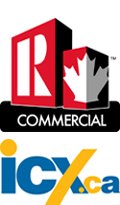Why You Can't Afford to Ignore Vacancy When Buying Commercial Real Estate
 Firstly, what is vacancy?
Firstly, what is vacancy?
Vacancy is the estimate, usually based on historical data for a given property or property type within a given market, of the amount of space within a building that is typically vacant and is usually expressed as a dollar amount per foot or more commonly as a percentage of gross rent.
Vacancy is one of the most overlooked expenses, in my experience, when dealing with individual investors. For some reason, most people have a hard time believing that their building might not be 100% full 100% of the time.
Is this reasonable? Not even close. Especially in the current economic climate where vacancies are still climbing and businesses aren't expanding at the same rate that we've seen over the last decade.
As part of your due diligence when analysing a property you should always include a vacancy expense in your pro forma - even if the building is full at the time of the analysis. The building won't be full forever!
Don't misunderstand - some vacancy is good for the market. Shocking, but true. What happens when times are good, and growing businesses can't find vacant space to move into? They risk stagnation and missed opportunities. So a little vacancy is a good thing, but rampant vacancy is obviously harmful too.
How much vacancy is healthy? Well that really depends on the property type and the general market. Residential income properties generally use 5% as a normal vacancy rate (at least in my market), but storage properties typically run anywhere from 10-20% vacancy in healthy markets. The key is to do your research and try to find out the prevailing vacancy in your market and use that as a benchmark for comparison purposes.
Failing to factor in a normal vacancy rate in doing your financial forecasts can be deadly to your bottom line, especially when there's little room for error in a tight market.







